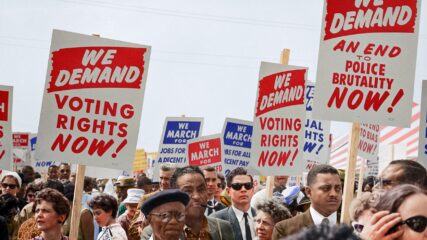
Em-URGE-ing Voices
Your urgent thoughts, urging action.
Why the Fight for Abortion Rights Still Matters in California
5 things you need to know about digital privacy in the Post-Roe era
Criminalizing Miscarriage

What About the Families?

America, You in Danger, Girl

There Was Never A Labor Shortage

A Triple Threat: My Thoughts on Three California Bills That Champion for Reproductive Justice

OTC Birth control? Is it safe?

Birth Control Access During the COVID-19 Pandemic: Just How Well are Metro Atlanta Students Getting By?
By: Sajada Parker
Birth control access is a unique situation among college students. Many rely on part-time jobs without health insurance, many survive on a tight budget, and many remain unaware of online resources attempting to close the gap between birth control access and income barriers.
Take Amelia* for example. A sophomore living in the metro Atlanta area, her access to birth control was challenged as she transitioned back to her rural hometown. Amelia, who asked not to have her hometown or school identified due to its small size, struggled to find the funds to access her birth control. As Amelia joined the millions of college students sent home after the COVID-19 outbreak of spring semester 2021, her access to reproductive freedom was limited.
“After being sent home from college, I did worry a lot about my access to the pill that I take. I had to move away from my job which I received health insurance from. With a very limited income, I couldn’t afford to purchase my birth control regularly. When it comes to food or a pill, which one is the obvious choice?”, Amelia explained.
While the average cost of birth control without insurance ranges from $50 to $200, many are unaware of the resources attempting to bridge the financial barrier to birth control pills. In recent years, services such as Nurx started to provide birth control ordering services with prices starting at $15 without insurance and $0 with an insurance plan. Yet, these services are behind in publicity and campaigning to service students like Amelia forced to stop or wean off of their birth control pill because of cost barriers.
When asked about online birth services, Amelia questioned the legality of such.
“When I went to my doctor, the doctor stated that a lot of online services are scams or are not safe. They said that I shouldn’t trust them because you don’t know who you’re ordering from. I was also told that the cheapest way was at their office. I didn’t know what to say. I felt a bit dumb for bringing it up after that. They told me that without insurance, I had no chance of getting my prescription filled. I gave up after that.”
And she’s not alone with her experience.
Mabel*, a community college student in Dekalb county shared a similar experience during a routine checkup.
“This was a bit before the pandemic hit. Thankfully, I did not have to move as a commuter but I still had a few issues when I asked my providers about my options since my hours were being cut from work. I work part-time, so I’m on a tight budget. When I was cut down to only four hours a week because of covid, I knew that some of my necessities would have to go. Of course, the pill was the first thing to go since I do have access to other contraceptives, but I am still not happy about it. I don’t have health insurance as a part-time worker. I live with a roommate without parental help due to some personal reasons. I asked my doctor about an IUD. The price? $900. That’s pretty much what I make in a month”.
While some women struggle to afford their monthly birth control prescriptions, some simply don’t have access to them.
“I live in the middle of nowhere. There’s no public transportation unless you count the buses, and I can’t drive. Coming to the metro Atlanta area has been so helpful because I don’t have to worry about whether I can afford a Lyft to the nearest clinic. I can just go to my university’s health clinic and receive a referral. I can’t do that when my school’s wellness center is closed, no one is answering the phone, and I am freaking out over having one pill left. It’s stressful. It was so stressful last year,” said Carol*, a senior student originally from North Dakota.
Obvious changes need to be made so that people who want birth control can receive access without financial and geographical barriers. And for those who can afford birth control or live in places where access is commonplace? There needs to be more information and public health campaigns about how to access birth control, whether online or in-person as a safe form of family planning.
As college students, women such as Amelia, Mabel, and Carol do have a silver lining in their journeys for reproductive freedom: their college’s wellness centers.
College wellness centers often offer free contraceptives, counseling, and referral services for students looking to take control of their reproductive health. But during the pandemic, many colleges were unable to provide such services. Wellness centers were closed. Understaffed centers missed phone calls from students looking for refills of their contraceptives. Staffers were laid off. Referral services were simply too expensive or far away.
“My college has definitely been a lifesaver now that I am back on campus. While they are not able to give out free packs to anyone just walking in, the nurse provides five days’ worth of emergency pills when I am having trouble getting a refill because of back pay or an emergency popping up. She’s been a lifesaver quite a few times,” said Amelia.
Carol has also found success by staying on-campus again.
“This fall semester has been so much better than the last one. I take the MARTA to my clinic when I’m running low – way cheaper than a $50.00 Lyft ride to and from the clinic. Being in Atlanta has made me grateful that unlike some, I only worry about the pill for three months out of the year”, she stated with a slight laugh.
What can colleges do to remedy the gap between birth control, pill access, and student breaks?
Mabel thinks that she knows.
“I think that colleges can offer more educational opportunities to learn more about birth control and how to access contraceptives. I didn’t even know that there was more out there than just pills until a few years ago. My school is quite small so we don’t have a full health clinic. I think that we should partner up with local pharmacies and doctors so that students don’t have to be referred out to get something. It shouldn’t be this hard”, she says.
For Amelia, her approach is slightly different.
“I think that schools should provide a stipend or an emergency fund for situations like these. Money access is the largest barrier for many students in my opinion. There can be all of the access in the world but without having money, what is it doing?”, she questions.
And for Carol?
“I really don’t know. It’s so hard to say because you have all of these things that aren’t helping that create the problem. It’s not going to be as easy as giving people or school funding or even having your own job to purchase the pills. It’s all about awareness I think, I really don’t know.”
While there are many approaches to reproductive freedom and having accessible birth control available to college students, one thing for certain is that there needs to be an overhaul of the current system in place to properly support students whether on or off-campus.
*Names have been changed for confidentiality

